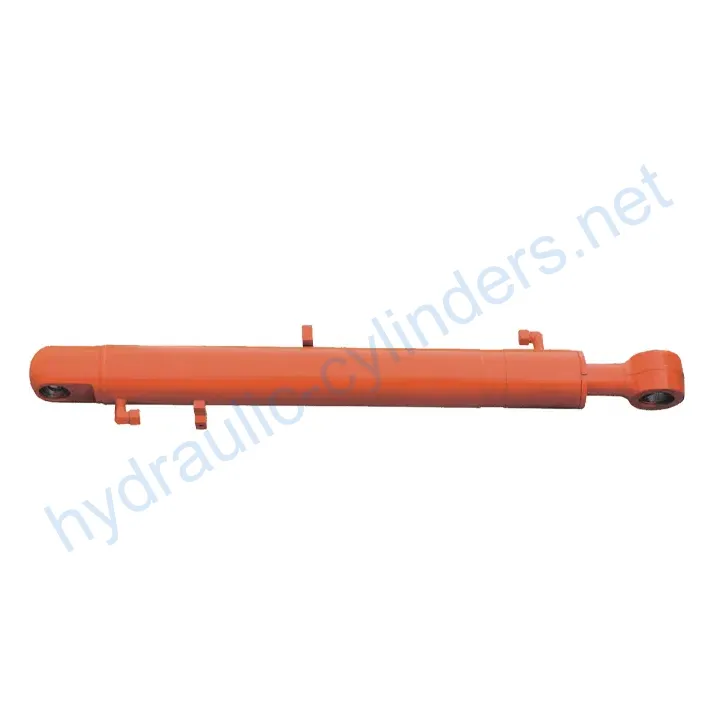Boom Cylinder For Bonny WAYDQ50-5
Boom Cylinder For Bonny WAYDQ50-5
Introduction to Boom Cylinder
The Boom Cylinder, specifically designed for the Bonny WAYDQ50-5, is a vital component in hydraulic systems that control the movement of heavy machinery buckets. This hydraulic cylinder is primarily used to manage the operation of buckets in excavators, backhoes, and front loaders, allowing the bucket to lift, lower, and tilt, thus facilitating efficient material handling tasks.
A bucket cylinder is engineered to withstand high pressures and heavy loads, ensuring reliable performance in demanding environments. It plays a crucial role in enabling precise control over the bucket’s movements, which is essential for excavation, lifting, and transporting materials. With its robust design, the boom cylinder enhances productivity and efficiency in various applications.
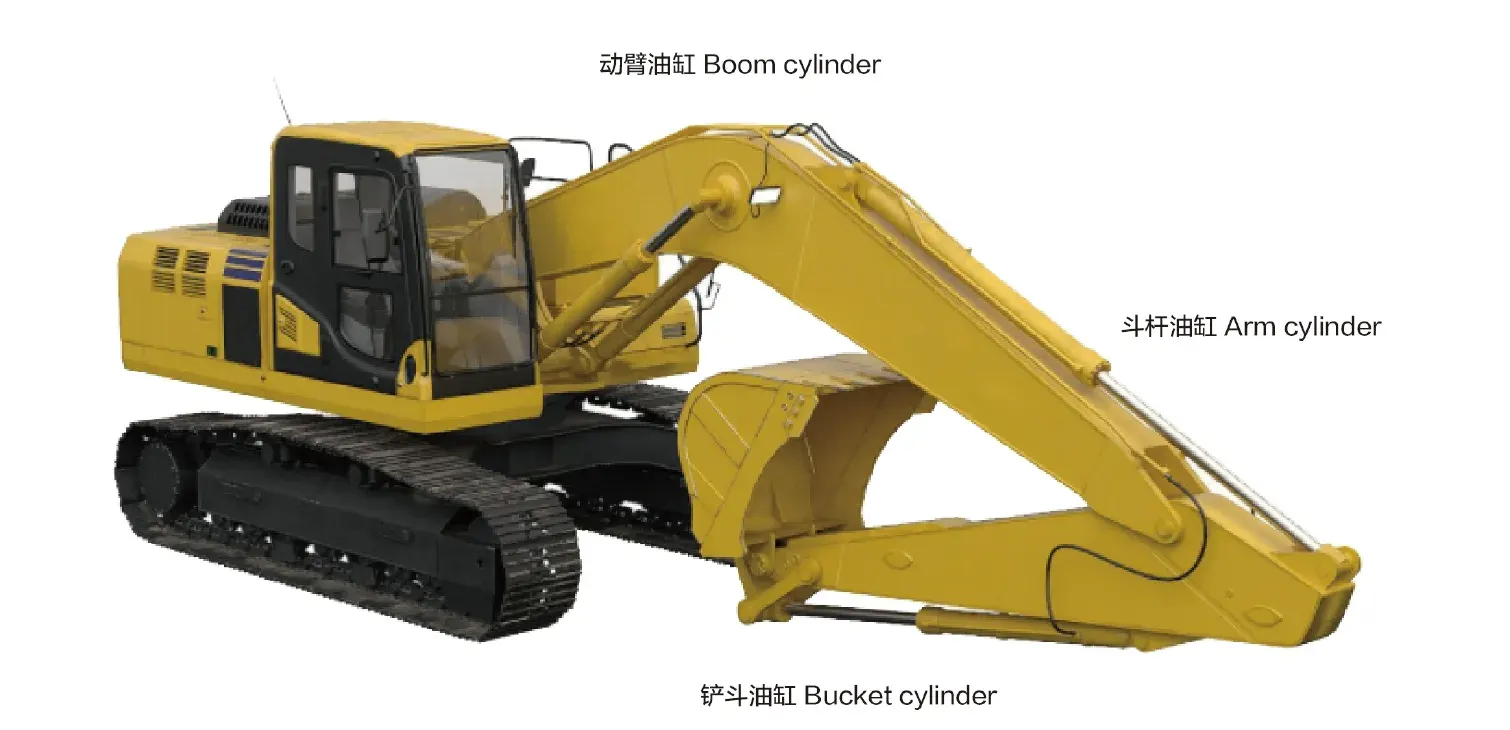
Features of the Boom Cylinder
-
High Strength and Durability
Typically constructed from high-strength steel or aluminum, these cylinders can endure high pressure and heavy loads, suitable for harsh working conditions. Their design also emphasizes wear resistance and corrosion protection, extending their lifespan.
-
Efficient Hydraulic Operation
Utilizing hydraulic oil pressure, these cylinders offer smooth extension and retraction actions, allowing for quick responsiveness to control commands and providing substantial pushing and pulling force, ideal for handling heavy objects and performing complex tasks.
-
Diverse Types
Available in both single-acting (operating in one direction) and double-acting (operating in both directions) variants, these cylinders can cater to different operational needs. Some models are telescopic, allowing for greater extension without increasing external dimensions, making them suitable for space-constrained applications.
-
Compatibility
Our products can perfectly replace existing hydraulic cylinders, ensuring seamless integration and functionality in various machinery models.
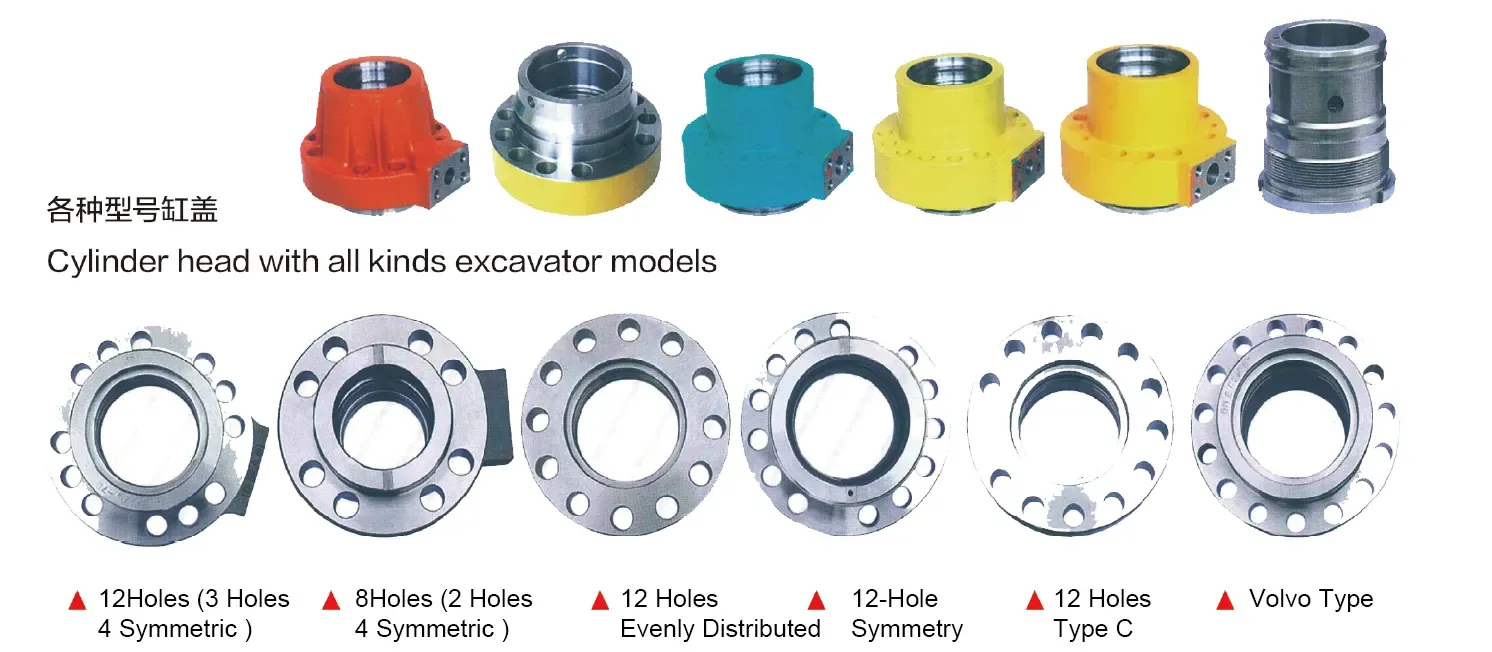
Applications of the Boom Cylinder
-
Construction Equipment
In excavators, boom cylinders are crucial for digging, loading, and moving earth or debris. They enable not only excavation but also the lifting of materials, enhancing the machine’s versatility and effectiveness on construction sites.
-
Agricultural Machinery
In front loaders, these cylinders facilitate the scooping, lifting, and transporting of soil, hay, and other materials. Their design enables operators to perform agricultural tasks efficiently, improving productivity in farming operations.
-
Excavators
Bucket cylinders allow excavators to penetrate soil effectively, facilitating the digging process. Their functionality is essential for achieving optimal performance in various earthmoving tasks.
-
Loaders
In front loaders, boom cylinders help lift and dump loads effectively, making them indispensable for material handling in construction and landscaping applications.
Design Considerations and Selection Criteria
-
Load Capacity
When selecting a boom cylinder, it is crucial to consider its load capacity. The cylinder must be able to handle the maximum weight it will encounter during operations. This ensures safety and reliability in heavy lifting scenarios. Adequate load capacity prevents failures and prolongs the lifespan of the equipment.
-
Sealing
Effective sealing is vital for preventing hydraulic fluid leaks. High-quality seals made from durable materials like polyurethane and nitrile rubber enhance the reliability of the cylinder. Proper sealing ensures optimal performance and reduces maintenance costs by preventing fluid loss.
-
Durability
Durability is a significant factor in selecting a boom cylinder. The materials used in construction and the overall design must withstand harsh working conditions, including extreme temperatures, moisture, and abrasive materials. A durable cylinder reduces downtime and maintenance needs.
-
Safety
Safety features are essential during operation. The cylinder should have built-in safety mechanisms to prevent accidental activation and ensure safe handling of heavy loads. Adhering to safety standards in design and operation helps protect both operators and machinery.
-
Maintainability
Ease of maintenance is a critical consideration. Cylinders designed for simple maintenance procedures allow for quick inspections, lubrication, and seal replacements. This minimizes operational disruptions and enhances the efficiency of the machinery.
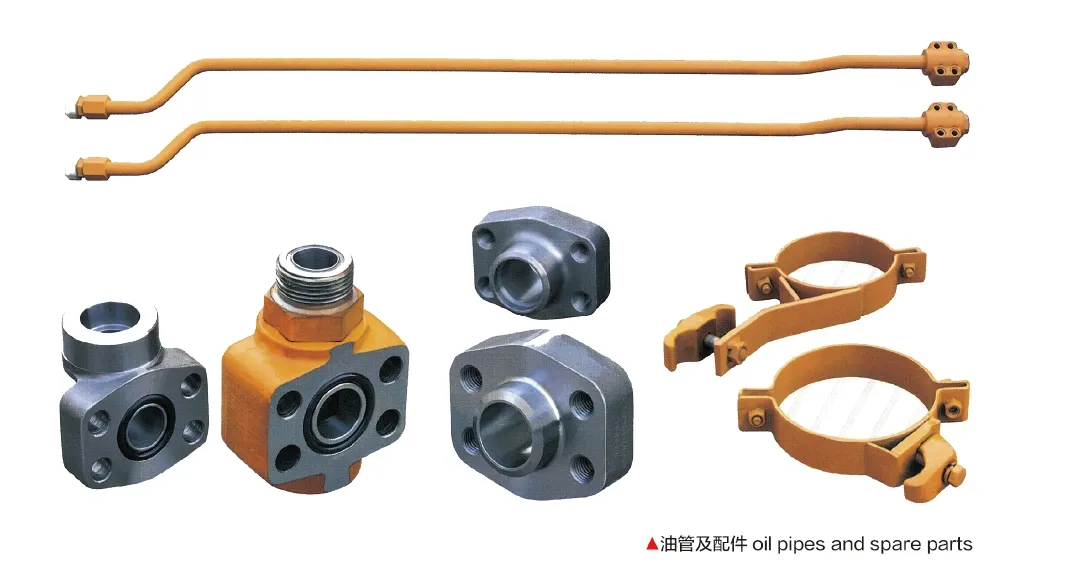
Sealing and Lubrication of the Cylinder
Effective sealing and lubrication are essential for the longevity and efficiency of hydraulic cylinders. Various seals, such as piston seals and rod seals, are used to prevent leaks and maintain pressure within the system. The selection of seals is critical, with materials like polyurethane and nitrile rubber being favored for their wear resistance.
The cylinder body and threaded end surfaces are meticulously processed to enhance wear resistance, ensuring optimal performance over time. Regular lubrication with the appropriate hydraulic oil is also necessary to minimize friction and wear between moving parts, contributing to the overall efficiency of the hydraulic system. Routine checks for seal integrity and lubrication levels should be part of any maintenance schedule to prevent operational failures.
Regular Inspection and Preventive Maintenance Measures
-
定期检查
Conducting regular inspections is crucial for identifying potential issues before they escalate. Operators should check for visible leaks, unusual noises, and any signs of wear. Early detection allows for timely interventions, avoiding costly repairs.
-
Proper Lubrication
Ensuring the cylinder is adequately lubricated helps reduce wear on moving parts. Operators should follow the manufacturer’s recommendations regarding lubrication intervals and types of oil. Proper lubrication enhances the efficiency and lifespan of the hydraulic system.
-
Seal Replacement
Seals should be replaced at recommended intervals or when signs of wear are evident. Maintaining seal integrity prevents hydraulic fluid leaks, which can lead to performance issues and safety hazards. Regularly replacing seals can significantly extend the lifespan of hydraulic cylinders.
Installation Guidelines
Installing a boom cylinder requires careful attention to ensure proper functionality and safety. Begin by ensuring that the workspace is clear and safe for operation. Proper alignment of the cylinder is critical; it should be aligned with the hydraulic system to avoid undue stress and potential failure.
Use suitable mounting brackets to secure the cylinder in place. Ensure the connections are tight and leak-free to maintain hydraulic pressure. After installation, conduct a thorough inspection to verify that all components are correctly installed and functioning as intended. Test the system under low pressure to check for leaks before proceeding to full operational pressure.
Maintenance Tasks
-
Regular Checks
Conducting routine checks on the hydraulic system allows for early detection of potential issues, ensuring safe operation. Operators should monitor performance and inspect for any unusual behaviors.
-
Appropriate Lubrication
Proper lubrication is fundamental to maintaining cylinder performance. Following the manufacturer’s guidelines for lubrication frequency and type of oil is essential. Regular lubrication helps reduce wear and prolongs the life of the cylinder.
-
Seal Replacement and Calibration
Replacing seals when necessary and conducting calibration checks ensures optimal performance. Properly calibrated systems operate more efficiently and safely. Regular maintenance of these components prevents leaks and extends the service life of the hydraulic cylinder.
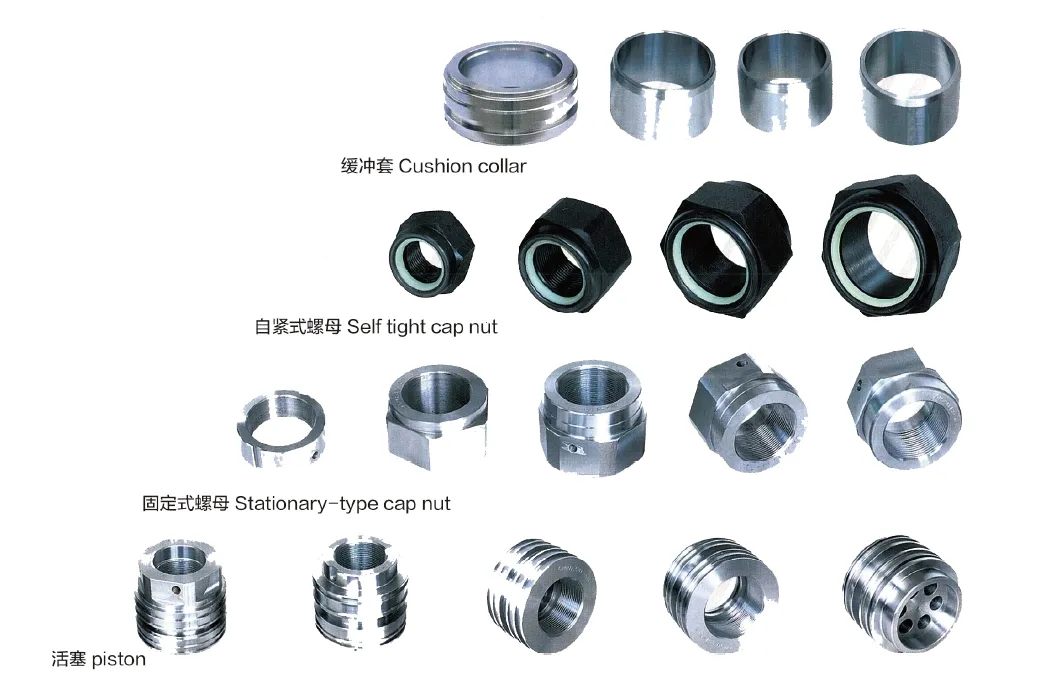
Safety Considerations and Environmental Factors
When using hydraulic cylinders, understanding safety measures is paramount. Operators should be trained to recognize the dangers associated with hydraulic systems, including high-pressure risks and the importance of personal protective equipment. Implementing safety protocols can prevent accidents and injuries.
Environmentally, it is crucial to manage hydraulic fluids properly to prevent leaks and spills that could harm the ecosystem. Regular maintenance and inspections help ensure that hydraulic systems operate efficiently and safely, minimizing environmental impact.
Troubleshooting and Common Issues
-
Leakage
Hydraulic fluid leaks can occur due to worn seals or loose connections. Inspect seals for wear and ensure all fittings are tight. Replacing worn seals and properly securing connections can resolve this issue.
-
Poor Performance
If the cylinder isn’t responding well, check for inadequate hydraulic fluid levels or air in the system. Bleeding the system and ensuring proper fluid levels can enhance performance.
-
Unusual Noises
Unusual sounds can indicate internal damage or a lack of lubrication. Inspect the cylinder for damage and ensure it is properly lubricated to prevent further issues.
Troubleshooting Tips
To effectively diagnose and resolve issues, operators should follow a systematic approach. Start by checking for visible leaks and abnormal sounds. Ensure that the hydraulic fluid level is adequate and that the system is free of air pockets. Regular preventive measures, such as routine maintenance and inspections, can significantly reduce the likelihood of encountering these problems.
By adhering to proper maintenance guidelines and addressing issues proactively, operators can extend the lifespan of hydraulic cylinders and maintain operational efficiency.
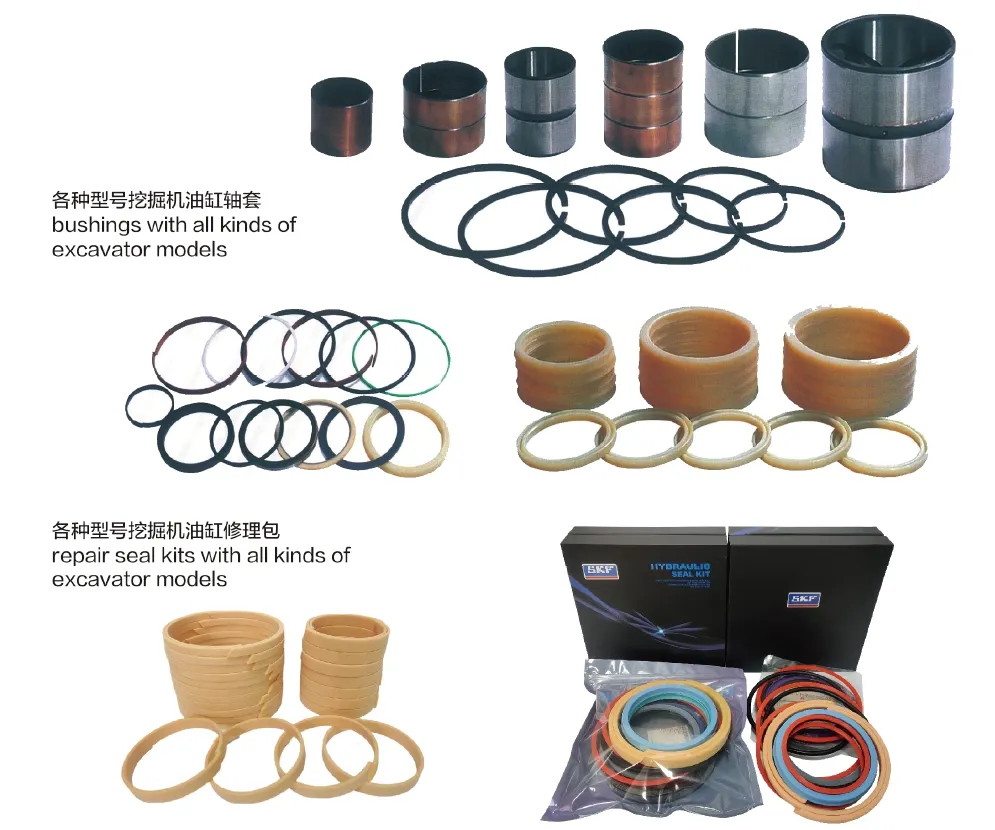
About Our Company
We are a leading manufacturer of hydraulic cylinders, specializing in providing high-quality replacement cylinders for various applications. Our extensive product range has positioned us as a key player in both domestic and international markets. We pride ourselves on our commitment to excellence and our refined production management strategies, leveraging advanced manufacturing technologies and professional testing systems.
With a strong focus on quality, we continuously enhance our manufacturing processes, ensuring high efficiency, accuracy, and product quality. Our expertise allows us to meet diverse customer needs, offering customized solutions that adhere to international standards.
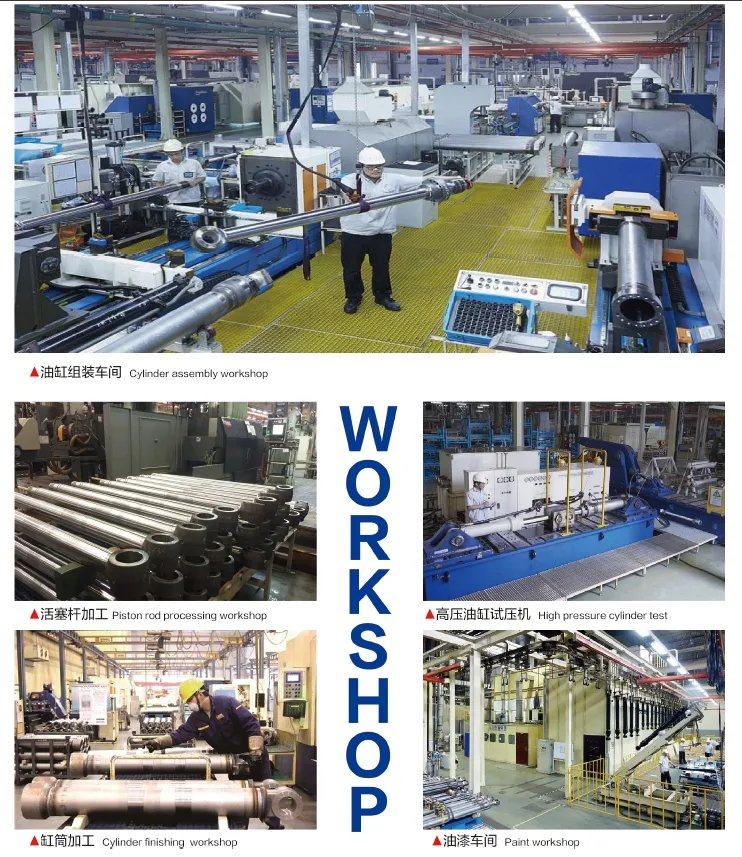
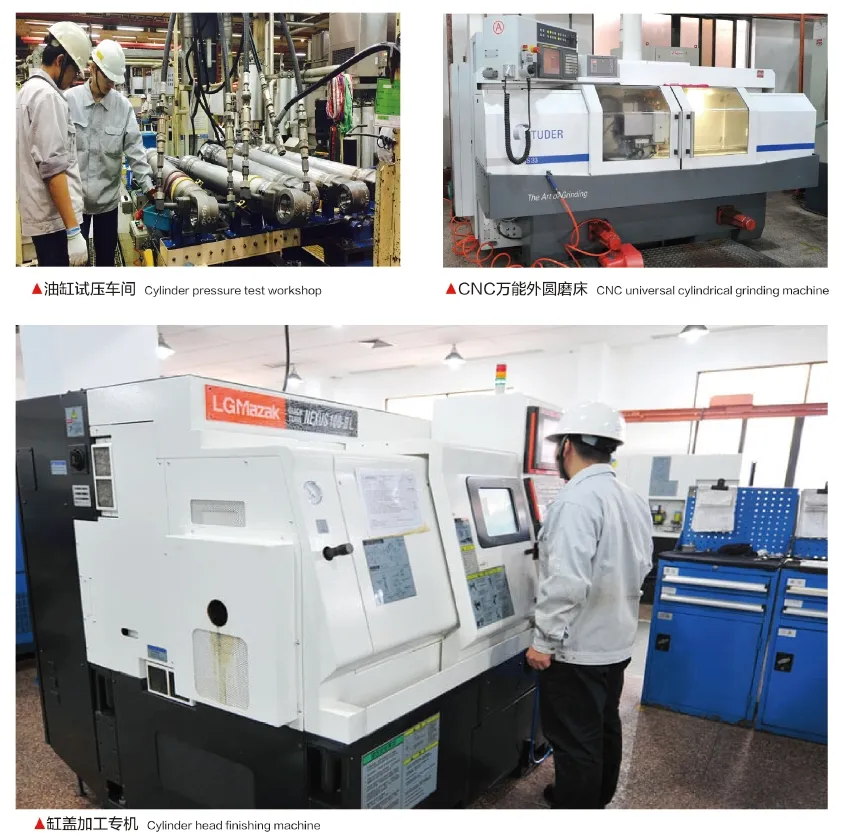
Author: lyl
参观我们的 VR 工厂
通过以下方式参观我们的 VR 工厂
液压缸应用:


